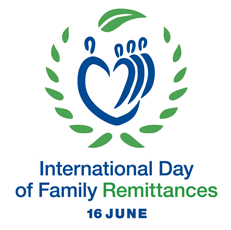Workers’ remittances rise 3.55pc to $14.606bln in July-March
KARACHI: Remittances from Pakistanis working abroad increased 3.55 percent to $14.606 billion in the nine months of the current fiscal year, the central bank data showed on Tuesday.
Remittances stood at $1.772 billion in March, up from $1.694 billion sent in the same month of the last fiscal year.
The State Bank of Pakistan (SBP) figures revealed that inflows from western economies, especially the United Kingdom (UK) and the United States (US) continued to increase.
The amount of money sent home by expatriates living in the UK increased 22.45 percent to $2.030 billion during July-March FY18.
Remittance inflows from the US came at $1.948 billion, showing an increase of 12 percent over the corresponding period of FY17.
The surge in remittances from the US and UK was buoyed by healthy economic activity and low unemployment in the US.
Moreover, a sharp depreciation of the dollar against the British pound inflated the dollar value of the remittances coming from the UK.
However, the share of Saudi Arabia, Pakistan’s largest remittance corridor, in total inflows remained downward, weighed by strict policies for foreign workers in the kingdom.
The country attracted $3.690 billion in remittances from Saudi Arabia in July-March FY18, compared with $4.078 billion in the same period of the last fiscal year.
Remittances from the United Arab Emirates (UAE) increased slightly to $3.264 billion in July-March FY18 from $3.143 billion a year ago.
Pakistani workers living in the Gulf Cooperation Council (GCC) countries sent home $1.648 billion, which was 3.47 percent lower than the nine months of last year. Remittance inflows from the European countries rose 43.97 percent to $478.89 million in July-March FY18.
Analysts said remittances provide a good support to the balance of payments. However, in case of Pakistan, a rebound in workers’ remittances was insufficient to help finance a hefty current account deficit.
The central bank sees a further slowdown in inflows from the Kingdom of Saudi Arabia (KSA), at least in the short-term due to a tough regulatory climate for migrant workers.
“The decline in inflow may become stronger going forward, after the imposition of VAT (value-added tax) from January 1, 2018 in both KSA and UAE,” the SBP said in the second quarterly report for the fiscal year 2017/18 published last week.
“Yet, inflows are expected to recover from other GCC countries, particularly Qatar, Bahrain and Oman. These GCC members have publicly announced a temporary deferment of the VAT,” it said.
“Moreover, recent policy initiatives undertaken in Pakistan, in the form of the Asaan Remittance Account and the promotion of home remittances through mwallets, may boost remittances in the future.”
Saudi Arabia has introduced a number of economic reforms to cope with the low oil price environment.
These reforms have the potential to bring important change in remittances to Pakistan, at least in the short run.
The most important is the job nationalisation drive, which aims to replace expatriate workers with Saudi citizens.
Saudi Arabia, along with the UAE, has introduced VAT at the rate of 5.0 percent from January 2018.
The VAT has been imposed on most wholesale and retail sales, including on food consumed at restaurants.
This tax is likely to increase the cost of living for unskilled lower income foreigners in KSA and UAE. Saudi Arabia generally hires semi-skilled or unskilled labour from Pakistan.
The VAT, being regressive in nature, is expected to affect the savings of the unskilled labour force, which will force them to send lower amounts back home.
The Saudi government has removed the driving ban for women from September 26, 2017.
“From Pakistan’s perspective, this step will have repercussions, as the demand for foreign drivers is likely to decrease, going forward,” the State Bank of Pakistan warned.
The imposition of levy on dependents and higher taxes on the companies
employing foreign workers will affect the skilled and high-skilled workers the most; these are the jobs for which Saudi citizens prefer competing with foreigners.
Therefore, a large number of people with ‘white collar’ jobs will be forced to either send their families back home or quit their jobs permanently and return to Pakistan.


